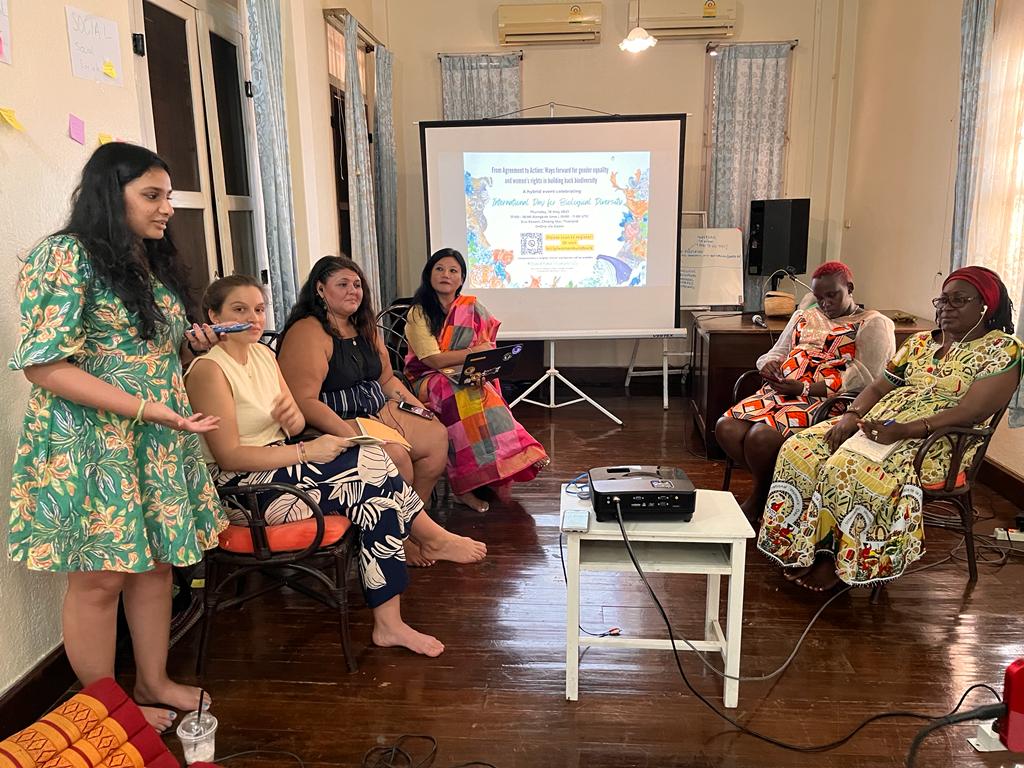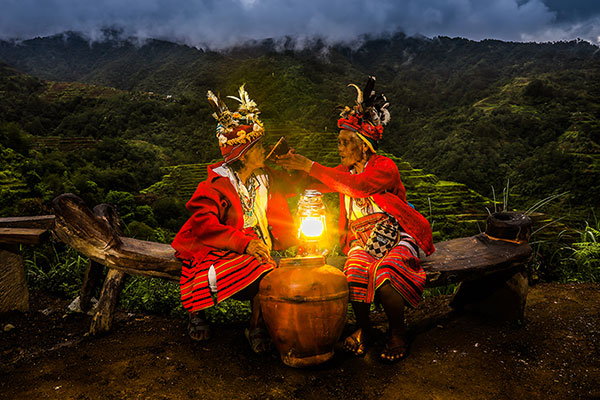To celebrate the International Day of Biological Diversity (IDB) and to promote the gender-responsive implementation of the Kunming-Montreal Global Biodiversity Framework through grassroots women working towards this goal through restoration and biodiversity governance, Women4Biodiversity held the event “From Agreement to Action: Ways forward for gender equality and women’s rights in building back biodiversity” on 18 May 2023.
The event was held both in-person in Chiang Mai, Thailand and online. It featured women working on grassroots restoration projects in Costa Rica, Argentina, Cameroon, and Kenya. These restoration projects are part of Women4Biodiversity’s initiative “Building Resilience and Weaving Gender-responsive Approaches to Biodiversity Governance” implemented with the funding support of Sida through SwedBio at Stockholm Resilience Centre.
Rose Pelagie Masso from the African Women’s Network for Community Management of Forest (REFACOF) in Cameroon highlighted women’s important role in biodiversity conservation and restoration.
“When we talk about the International Day for Biological Diversity, we need to talk about local women and we have to pay respect to these women, who from generation to generation, worked very hard for biodiversity,” Masso said. “With their traditional knowledge they conserved forests. When women use the forest, they think about the bark, the leaves. They think not only for themselves but also for future generations.”

Clockwise from left: Shruti Ajit (Women4Biodiversity), Valeria Enderle (Fundacion CAUCE), Aracelly Jimenez Mora (CoopeMolusChomes), Mrinalini Rai (Women4Biodiversity), Priscah Chebet Liman (PACEP), and Rose Pelagie Masso (REFACOF)
Priscah Chebet Liman from the Pastoral Communities Empowerment Programme (PACEP) in Kenya pointed to the gains in restoration in West Pokot County in Kenya. “We were able to organize women’s groups doing restoration,” she said. She added that her hope for the future is that “more women will be empowered and encouraged to take part in restoration projects,” and that Kamatira Forest will be “full of trees.” Kamatira Forest is PACEP’s restoration site in the project with Women4Biodiversity.
The event not only featured women’s insights on restoration but also their views on the gender-responsive implementation of the Kunming-Montreal Global Biodiversity Framework, especially on Target 23, the stand-alone target on gender equality.
Valeria Enderle from Fundación Ambiente y Recursos Naturales (FARN) and Fundación CAUCE in Argentina emphasized the need for women’s participation and government support in implementation. “Research in the different territories principally with the participation of women in the decision-making in this [Kunming-Montreal Biodiversity Framework] has to be done,” she said. “The government needs public legislation for this participation to be real and effective.”
Similarly, Aracelly Jimenez Mora from CoopeMolusChomes RL in Costa Rica is hopeful for the gender-responsive implementation of the biodiversity framework in her country. She said that her country has different public policies on women, as well as “an institute [dedicated] for women.”
Masso added that she would like governments to indeed take the global biodiversity framework from “agreement to action,” and for women to take part in decisions and have enough resources to continue their work in biodiversity conservation and restoration.
Meanwhile, Ashanapuri Hertz from Women4Biodiversity’s partner SwedBio commended the efforts of the women panelists in their restoration projects in their countries. She also reiterated the need for women to engage in decision-making in biodiversity issues.
Women4Biodiversity Director Mrinalini Rai expressed high hopes for the future of these women in their restoration projects and advocacy for a gender-responsive implementation of the global biodiversity framework. “Their actions [would be] grounded in [their] lived experiences working on the ground,” she said.
CHECK OUT the LIVE recording in ENGLISH HERE


